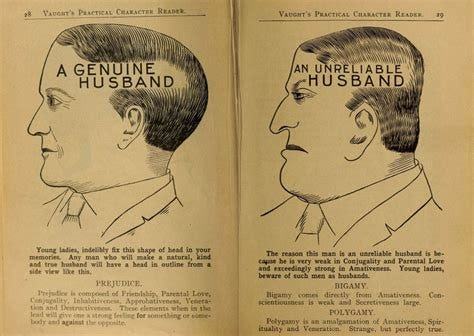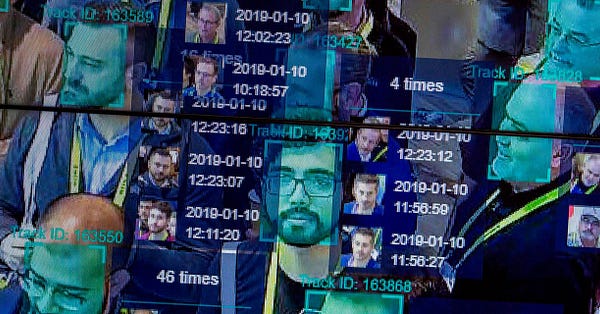Deep Phrenology
Biological essentialism is alive in well in science. Deep learning makes it worse.
Ear to the Ground
Biological essentialism is alive in well in science.
This week was a notable week for coding pseudoscientific biological essentialism with statistics.
After some controversy, Psychological Science retracted an article entitled Declines in Religiosity Predict Increases in Violent Crime-but Not Among Countries With Relatively High Average IQ. A quote from the piece,
The prescriptive values of highly educated groups (such as secularism, but also libertarianism, criminal justice reform, and unrestricted sociosexuality, among others) may work for groups that are highly cognitively sophisticated and self-controlled, but they may be injurious to groups with lower self-control and cognitive ability. Highly educated societies with global esteem have more influence over global trends, and so the prescriptive values promulgated by these groups are likely to influence others who may not share their other cognitive characteristics. Perhaps then highly educated and intelligent groups should be humble about promoting the unique and relatively novel values that thrive among them and perhaps should be cautious about mocking certain cultural narratives and norms that are perceived as having little value in their own society.
In plain English, this reads as “Some groups of people are too stupid and infantile to have civil liberties, rule of law, and the right not to be executed for being gay. Perhaps we smart people should take it easy on pushing such values on fools who can’t handle them.” Which groups of people are too stupid to have justice and rights? That is left up to the imagination of the reader.
If your thinking, “well, just because you don’t like the message doesn’t mean it’s wrong,” there are serious data issues with the article. Further, even if the data were perfect, it would only show that time trends in religious attendance correlate with time trends in homicide rates in “low-IQ countries” but not in “high-IQ countries”. From that, they jump to the idea that the values of high-IQ groups would hurt low-IQ groups — that logical leap is stunning.
When IQ is used in a statistical analysis, it should indicate to you that someone is trying to sell psychometric snake oil or a eugenics program. Nassim Taleb has a great explainer as to why IQ science is largely pseudoscience.
The authors’ retraction focuses on the data issues and not the underlying problem of the racial essentialist views it entails


The thing about a psych study is that statisticians like Andrew Gelman (who has waged war on junk psych research) can go in, look at the analysis, and point out its flaws.
This kind of analysis is much more difficult to do with deep learning.
Like what you see? Share this post with a friend.
Deep Phrenology: AI makes the biological essentialism problem worse.
Springer Nature (almost) published a paper using deep learning to predict criminology from a picture.
“With 80% accuracy and with no racial bias, the software can predict if someone is a criminal based solely on a picture of their face. The software is intended to help law enforcement prevent crime.”
The implicit assumption is that there is a biological relationship between the face and head, and criminality. We humans aren’t sophisticated enough to see it. But deep learning can see it, so let’s give this to the cops.
We only capture examples like this because they are absurd. This paper is literally trying to legitimize phrenology with black box statistics. They advertise a law enforcement use case, i.e. a phrenology-based version of The Minority Report.

However, consider the papers where the premise is less obviously absurd, and where the application less obviously dangerous, but still playing to our tendency to find appeal in biological essentialism.
Big tech leaves facial recognition for law enforcement; small startups replace them
This tweet last week by Yann LeCun is worth reading through.


I find it problematic. He points out that bias from the algorithm is driven by bias in the dataset, and that the problem would be partially ameliorated by getting a better dataset.
But getting the platonic dataset that is not going to lead to biases that harm any subpopulations in the data would be a huge technical and logistics challenge, especially with datasets needed to train cutting edge deep learning models.
Consider that the big tech companies are pulling out of the use of facial recognition in law enforcement applications.
Who is filling the gap? Companies who certainly do not have the resources, talent, or inclination to curate datasets.


Signals from China
Trump’s suspending of the H1-B visa program is a shocking exercise in self-harm. It is as if he asked, “What is the most important area of technological development relative to national competitiveness and security, and what is the best way to undermine our national advantage in this technology?” The Marco Polo project illustrates the extent of this national self-harm with these stunning graphics.

This gist is that this is a epic Christmas gift to China.
